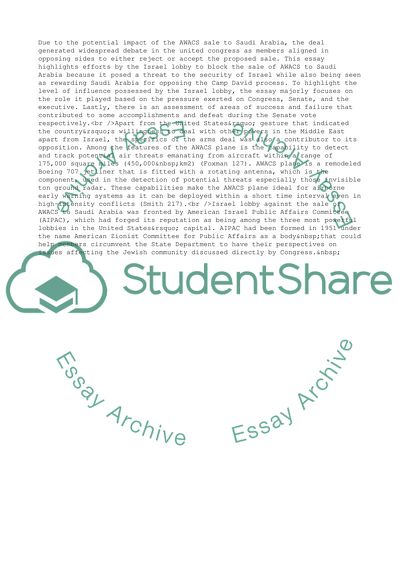Cite this document
(AWACS in Saudi Arabia Term Paper Example | Topics and Well Written Essays - 3250 words, n.d.)
AWACS in Saudi Arabia Term Paper Example | Topics and Well Written Essays - 3250 words. https://studentshare.org/business/1848150-the-israeli-lobby-and-the-awacs-sale-to-saudi-arabia-in-1981
AWACS in Saudi Arabia Term Paper Example | Topics and Well Written Essays - 3250 words. https://studentshare.org/business/1848150-the-israeli-lobby-and-the-awacs-sale-to-saudi-arabia-in-1981
(AWACS in Saudi Arabia Term Paper Example | Topics and Well Written Essays - 3250 Words)
AWACS in Saudi Arabia Term Paper Example | Topics and Well Written Essays - 3250 Words. https://studentshare.org/business/1848150-the-israeli-lobby-and-the-awacs-sale-to-saudi-arabia-in-1981.
AWACS in Saudi Arabia Term Paper Example | Topics and Well Written Essays - 3250 Words. https://studentshare.org/business/1848150-the-israeli-lobby-and-the-awacs-sale-to-saudi-arabia-in-1981.
“AWACS in Saudi Arabia Term Paper Example | Topics and Well Written Essays - 3250 Words”. https://studentshare.org/business/1848150-the-israeli-lobby-and-the-awacs-sale-to-saudi-arabia-in-1981.


